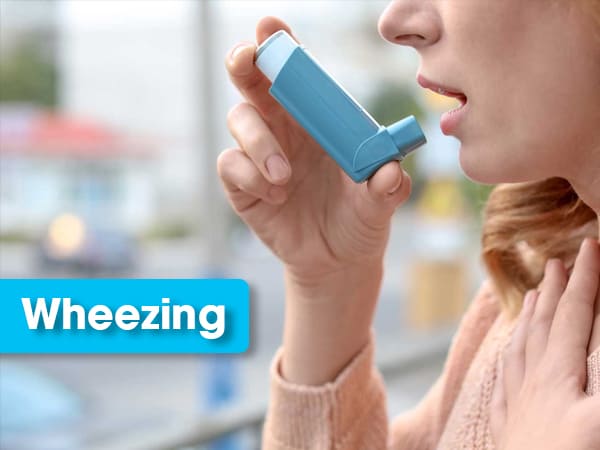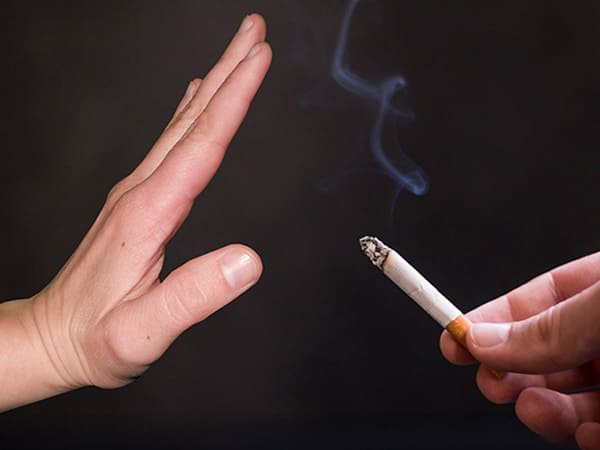Just In
- 54 min ago

- 4 hrs ago

- 5 hrs ago

- 10 hrs ago

Don't Miss
- Finance
 1:3 Bonus Share, Rs 13.25/Share Dividend: Buy Maharatna PSU, TP Rs 355, Fundraise Approved
1:3 Bonus Share, Rs 13.25/Share Dividend: Buy Maharatna PSU, TP Rs 355, Fundraise Approved - Sports
 Who Won Yesterday's IPL Match 33? PBKS vs MI, IPL 2024 on April 17: Mumbai Indians Escape Last-Ditched Fight by Punjab Kings To Win
Who Won Yesterday's IPL Match 33? PBKS vs MI, IPL 2024 on April 17: Mumbai Indians Escape Last-Ditched Fight by Punjab Kings To Win - Movies
 Do Aur Do Pyaar OTT Release Date & Platform: When & Where To Watch Vidya Balan’s Film After Theatrical Run?
Do Aur Do Pyaar OTT Release Date & Platform: When & Where To Watch Vidya Balan’s Film After Theatrical Run? - News
 BRS Chief K Chandrasekhar Rao Slams BJP, Says K Kavitha's Arrest Is Vendetta Politics
BRS Chief K Chandrasekhar Rao Slams BJP, Says K Kavitha's Arrest Is Vendetta Politics - Automobiles
 Aprilia RS 457 Accessories: A Detailed Look At The Prices
Aprilia RS 457 Accessories: A Detailed Look At The Prices - Education
 Karnataka SSLC Result 2024 Soon, Know How to Check Through Website, SMS and Digilocker
Karnataka SSLC Result 2024 Soon, Know How to Check Through Website, SMS and Digilocker - Technology
 Nothing Ear, Ear a With ANC, Up to 42.5 Hours of Battery Launched; Check Price and Availability
Nothing Ear, Ear a With ANC, Up to 42.5 Hours of Battery Launched; Check Price and Availability - Travel
Telangana's Waterfall: A Serene Escape Into Nature's Marvels
Wheezing: Symptoms, Causes And Treatment
Wheezing is a respiratory disorder and usually, it can be identified by a high-pitched whistling sound while you exhale and in severe cases when you inhale. Caused by inflamed or narrowed airways, over a period of time, wheezing can lead to serious health issues and demands proper diagnosis and treatment.
To put it into perspective, the American Thoracic Society Committee on pulmonary nomenclature defines wheezes as high-pitched continuous sounds with a dominant frequency of 400 Hz or more. Rhonchi are characterized as low-pitched continuous sounds with a dominant frequency of about 200 Hz or less. Therefore, wheezes are continuous lung sounds [1] .

What Causes Wheezing
While there are numerous reasons that can generate wheeze, few minor to severe conditions are listed below [2]:
- Post nasal drip
- Carcinoid tumours
- Foreign body inhalation
- Forced exhalation by normal individuals
- Obstructive airway diseases such as asthma
- Respiratory infections such as croup and laryngitis
- Hyperdynamic airway collapse (tracheobronchomalacia)
- Pulmonary peribronchial oedema such as congestive heart failure
- Airway compression - intrinsic or extrinsic (squamous cell carcinomas, goitre)
- Vocal cord dysfunction (paradoxical vocal fold motion (PVFM), vocal cord paralysis
- Chronic Obstructive pulmonary diseases (COPD) such as anaphylaxis and bronchiolitis
Symptoms Of Wheezing
Wheezing can be identified by different symptoms such as whistling sound during exhaling and laboured breathing followed by a tightening feeling in the chest. The interesting part it is if you plug your ears, you can hear wheezing more loudly.
While wheezing affects appearance, appetite, breathing patterns and sleep patterns, it also causes noisy breathing, noisy chest, coughs and fever.
Risk Factors Of Wheezing
Age is no bar for wheezing and therefore, it can happen to anyone. However, you can keep a check on certain risk factors that can increase your chances of developing a wheeze. While asthma, which can be a hereditary illness that runs in families, wheezing can also occur in people with
- allergies
- lung cancer
- smokers and
- increased exposure to infections (in case of toddlers).

Diagnosis Of Wheezing
Initially, the doctors proceed by asking the duration of your wheezing. The tests are performed depending on whether it is a mild condition or severe condition of wheezing. If there is physical exertion during exercise or recurrent wheezing, your doctor might ask these questions:
- What makes you wheeze?
- When does wheezing occur - day or night?
- Is there any particular food item that is causing you to wheeze?
- Does getting rest help or make you feel better?
- Do you smoke?
- Do you have trouble while inhaling or exhaling?
If your condition is severe or deteriorating, then the doctor shall perform a physical test or exam and listen to your lung sounds and breathing pattern. Blood tests, lung X-ray, and lung function tests will be performed to keep a track of your oxygen levels. Further, in the case of infants and children, doctors may introspect and delve deeper to find out whether he/she did not inhale or swallow small objects like coins, pieces of paper, small toys that might also result in wheezing.
Treatments For Wheezing [3]
- Inhale moist air - Taking steam will not only loosen up congestion but will also counter mucus in your airways, making it convenient for you to breathe smoothly.
- Drink warm liquids - It can be anything healthy from drinking warm water to herbal tea or hot milk. This will help your clear congestion as well and break up and loosen stubborn mucus.

- Diet - Adding vitamin D-rich foods (dairy products, oily fish such as salmon and swordfish, red meat) and vitamin E-rich foods (spinach, sunflower seeds, peanut butter and almonds) in your diet is beneficial in case of respiratory illness. Eating fresh vegetables like spinach, broccoli, tomatoes, bell peppers, oranges is also suggested.
- Medications - Follow doctor's prescription and instructions. While there are a wide variety of medication available but options you can choose from when it comes to getting proper medication for wheezing but consult your doctor in case of emergency to know what will suit your condition best.
- Practice pursed lip breathing - Add this into your daily routine as this breathing technique is designed to make your each breath count. All you have to do is breathe slowly realizing its purpose. While you inhale air, pucker your lips and while exhaling do it slowly. Increase the count to speed up your recovery.
- Quit smoking - this one shift in your habit that will make long recovery short. In the case of chain smokers, it can lead to serious conditions like chronic bronchitis and emphysema.
- [1] Meslier, N., Charbonneau, G., & Racineux, J. L. (1995). Wheezes.European respiratory journal,8(11), 1942-1948.
- [2] Patel, P. H., & Sharma, S. (2019). Wheezing. InStatPearls [Internet]. StatPearls Publishing.
- [3] Berthon, B. S., & Wood, L. G. (2015). Nutrition and respiratory health--feature review.Nutrients,7(3), 1618–1643. doi:10.3390/nu7031618
-
 wellnessExpert Article On COPD: Ayurvedic Treatment And Management Of Chronic Lung Illness
wellnessExpert Article On COPD: Ayurvedic Treatment And Management Of Chronic Lung Illness -
 kidsIs Wheezing In Children A Sign Of Asthma? Types, Causes And Treatments
kidsIs Wheezing In Children A Sign Of Asthma? Types, Causes And Treatments -
 disorders cure7 Ways To Reduce Your Wheezing Naturally
disorders cure7 Ways To Reduce Your Wheezing Naturally -
 disorders cureHow To Stop Wheezing Without An Inhaler?
disorders cureHow To Stop Wheezing Without An Inhaler? -
 wellness20 Cancer Symptoms That Women Are Likely To Ignore
wellness20 Cancer Symptoms That Women Are Likely To Ignore -
 wellnessIs Your Breathing Trouble Asthma Or Something Worse?
wellnessIs Your Breathing Trouble Asthma Or Something Worse? -
 wellnessDifference Between Asthma & Wheezing
wellnessDifference Between Asthma & Wheezing -
 kidsCough And Cold Medication May Harm Kids
kidsCough And Cold Medication May Harm Kids -
 healthExclusive: Expert Shares Impact of Heat Waves on Infectious Disease Transmission
healthExclusive: Expert Shares Impact of Heat Waves on Infectious Disease Transmission -
 healthExclusive: Doctor Shares Why Women Should Prioritize Health, Key Resolutions For Well-being And Vitality
healthExclusive: Doctor Shares Why Women Should Prioritize Health, Key Resolutions For Well-being And Vitality -
 healthEverything You Need To Know About Deadly H5N1 Virus That Can Be 100 Times Worse That COVID-19 Pandemic
healthEverything You Need To Know About Deadly H5N1 Virus That Can Be 100 Times Worse That COVID-19 Pandemic -
 astrologyWorld Health Day 2024: Holistic Health Tips For 12 Zodiac Signs As Per Astrology
astrologyWorld Health Day 2024: Holistic Health Tips For 12 Zodiac Signs As Per Astrology


 Click it and Unblock the Notifications
Click it and Unblock the Notifications



